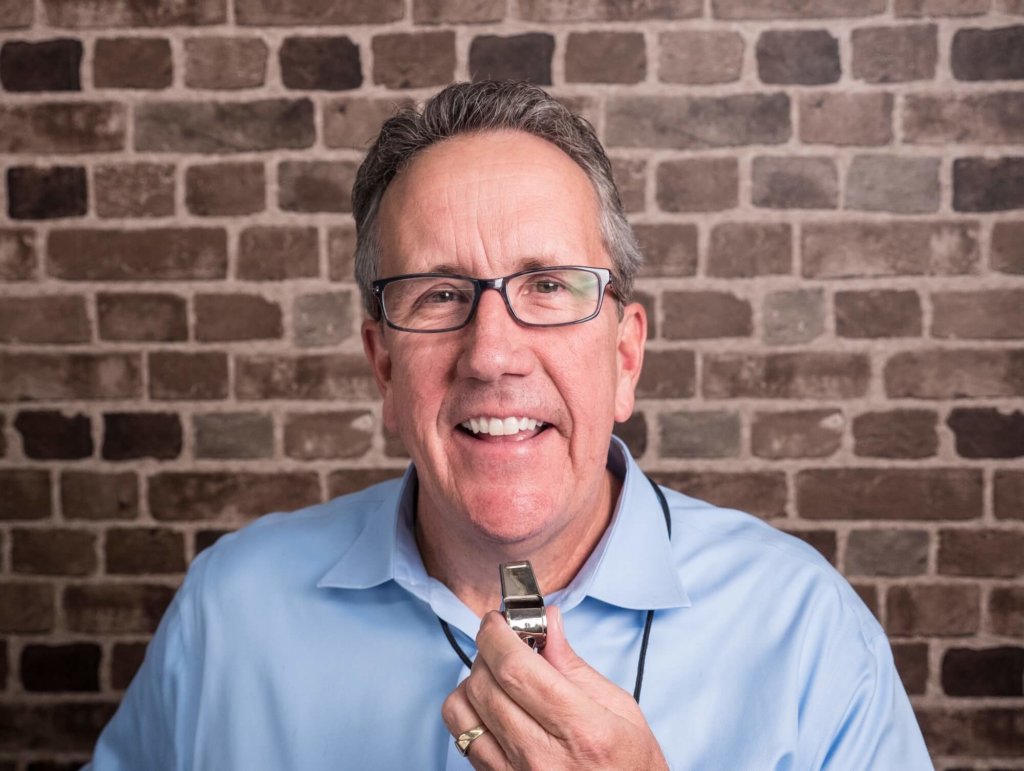Business-owning families face the dilemma of living out their professional concerns in non-professional contexts – a situation that Pete Walsh is all too familiar with.
After convocation, Walsh worked for his multigenerational Arizona-based family business for 16 years. Over his tenure, he continuously came into professional conflict with his uncle. When it came to family business matters, they did not see eye to eye. As family members, however, this was not the case; cognisance of this duality, Walsh asserts, is a crucial factor in generating long-term success.
Now, Walsh leverages his family business experiences as a coach, author and blogger on the subject of boundaries. In 2013, he launched the Family Business Performance Center, through which he counsels families, advancing professional best practices on relationship health.
We sat down with Pete Walsh to talk about the lessons he learned from working with his uncle and how other family businesses can benefit by keeping the family and the business separate.

Is it more difficult to establish boundaries between the personal and professional in a family business than it is in a non-family business?
Certainly – not only do family business members share their workdays, but they typically share aspects of their private lives as well, even if it’s uncomfortable to do so. Regardless, tension from one sphere must be prevented from permeating the other.
For example, my uncle and I did not see eye to eye at the office. Nonetheless, my wife and I had to join him at our family’s holiday dinner. Even though I was angry and frustrated with my uncle, I told her and our children to hug him. No matter what happens at work, our love and respect for family is unconditional. We need to make sure it’s felt, which is easier when certain ground rules exist.
Helpfully, my uncle and I had an agreement in place that we would not discuss business at family gatherings. Maintaining this boundary takes a considerable amount of discipline because the business is a primary concern in everyone’s life.
So, if my cousin had asked about how we were getting along at the office, I would have responded, ‘Let’s stop there for a minute because we have an agreement not to discuss this.’
How else can family business members implement this separation?
Try to keep it light but also unequivocal and transparent. Coming off as heavy-handed can exacerbate the situation. Make it playful, like, ‘Hey, hold on a minute. Remember our agreement.’
Redirection is another useful tactic. If I’m at a family function, and someone dives into an anecdote about a business conquest, I might follow up with a question about their recent vacation or their children’s progress in school.
I rehearse what I will say when one of these situations arises. I practice phrases like, ‘I’m not willing to discuss that today,’ or, ‘Thanks for asking, but can we focus on our holiday dinner?’
It’s important to note that these tactics require courage. People have a hard time taking no for an answer. In this context, some of my favourite words are, ‘I’m not willing to discuss that.’ Often, when you communicate directly and in the right way, people will honour your wishes.
“Younger generations must also have the opportunity to voice their perspectives…It’s the process that’s important. Regardless of which way works better, showing openness to next-gen ideas heightens multigenerational engagement and builds empathy.”
How do these boundaries change across generations?
This question touches on a crucial part of the boundaries topic, which is acceptance. It takes mindfulness to attempt to understand the perspective of another generation. To use my relationship with my uncle as an example once again, he was born and raised during the Great Depression in the United States. His worldview is different from mine because of it.
In the family business, understanding the founding generation’s perspective is vital. Often, in the business’s nascency, the founders worried about paying rent or going bankrupt. Subsequent generations, living expansively, might find it difficult to identify with that reality. Lack of understanding leads to dissonance and conflict.
The answer is communication. Having conversations that build empathy can be difficult at first but get easier with time.
Younger generations must also have the opportunity to voice their perspectives. Often, those in the founding generation wonder why they should have to listen to alternative ways of doing things when their way has always worked and still works. However, it’s the process that’s important. Regardless of which way works better, showing openness to next-gen ideas heightens multigenerational engagement and builds empathy.
How can family business members identify boundaries that will add resiliency to their organisations?
A personality assessment is an excellent starting place. Evaluations can help people realise things about themselves and how they work that they aren’t aware of. They may come to realise, for example, that they are a classic introvert or a detail-oriented person.
[ms-protect-content id=”4069,4129″]
This was one of the differences between my uncle and me. He was conservative, methodical and detail-oriented. I had a lot of ideas that I wanted to try out, which meant that we disagreed.
After an assessment, family members must take personal responsibility for what works and what doesn’t. In my consultancy practice, I conduct an exercise with families where members clearly state what is working for them and what isn’t. It can get emotional, but when the dust has settled, these conversations help people take responsibility for their own needs.
“You cannot force people to change. What you can do, however, is say, ‘How can I support you? What would work for you in this relationship?’ By doing that, you invite them to take responsibility.”
Overstepping boundaries can be hurtful. How can family members deal with the emotional fallout?
Dealing with these emotions is hard. In my relationship with my uncle, I had to practice forgiveness every day. Maintaining relationships requires continuous work, and forgiveness is an ongoing process.
Something that touches on our role in this duality and that resonates with me is: how somebody treats you is their karma, and how you respond to it is yours. My uncle’s experience growing up through the Great Depression made him a cynic. Despite operating a successful family business for 80 years, he eternally believed it was about to crumble.
In time, I realised that his issues did not have to be my issues. I could empathise with his concerns without living them.
You cannot force people to change. What you can do, however, is say, ‘How can I support you? What would work for you in this relationship?’ By doing that, you invite them to take responsibility.
At the core of it all is a shared vision and set of values. For it to work, everyone has to want and be prepared to work toward the same goals. Families need to establish whether or not this is the case before concentrating on anything else.
For many families, there exist learned behaviours of fighting and tearing each other down. It’s important to realise that these behaviours can also be unlearned. A shared purpose is foundational; it’s something everyone can use to support each other and allow each other to flourish. Commonality is a unique concept for some, but it’s where compatibility and, by extension, sustainability start.
[/ms-protect-content]














